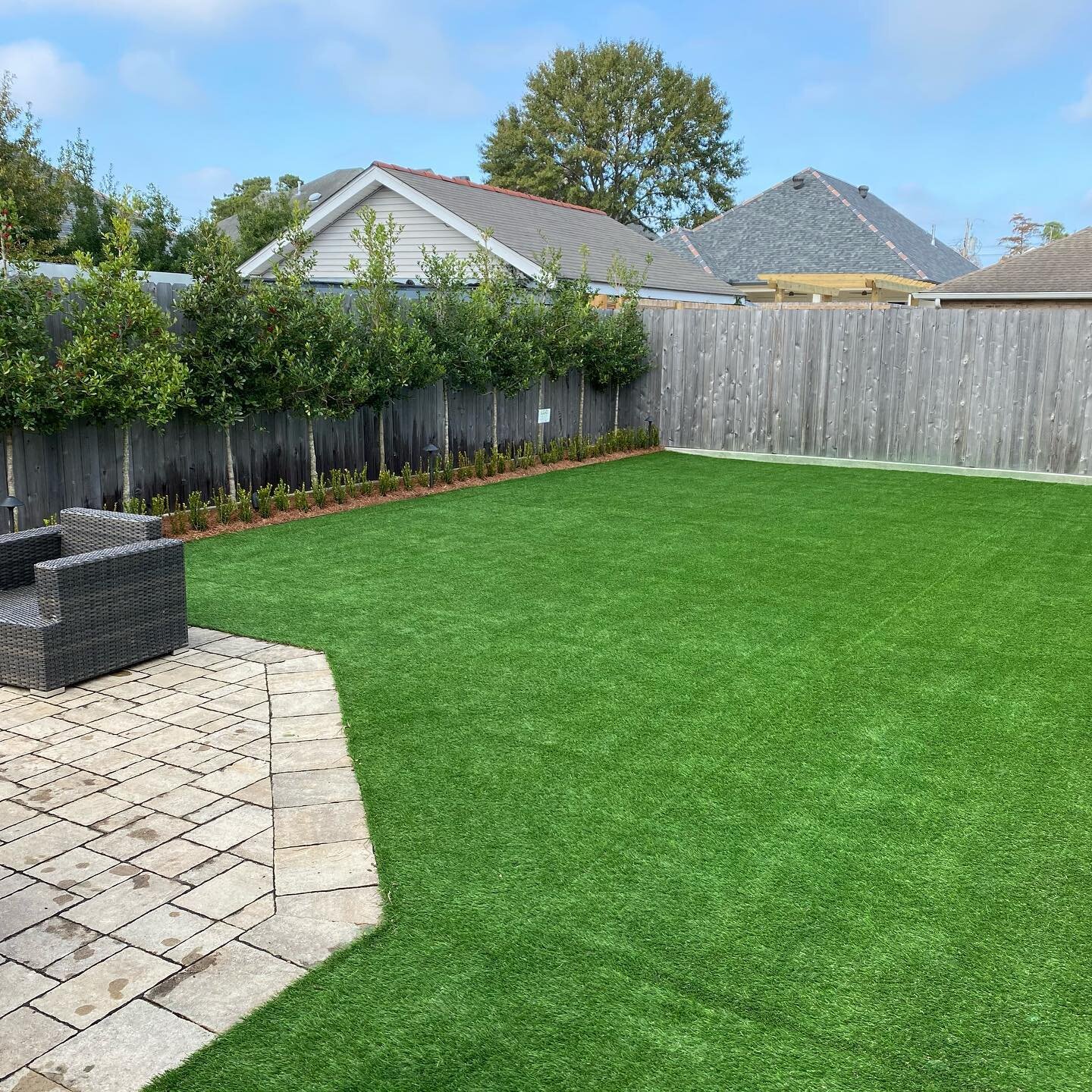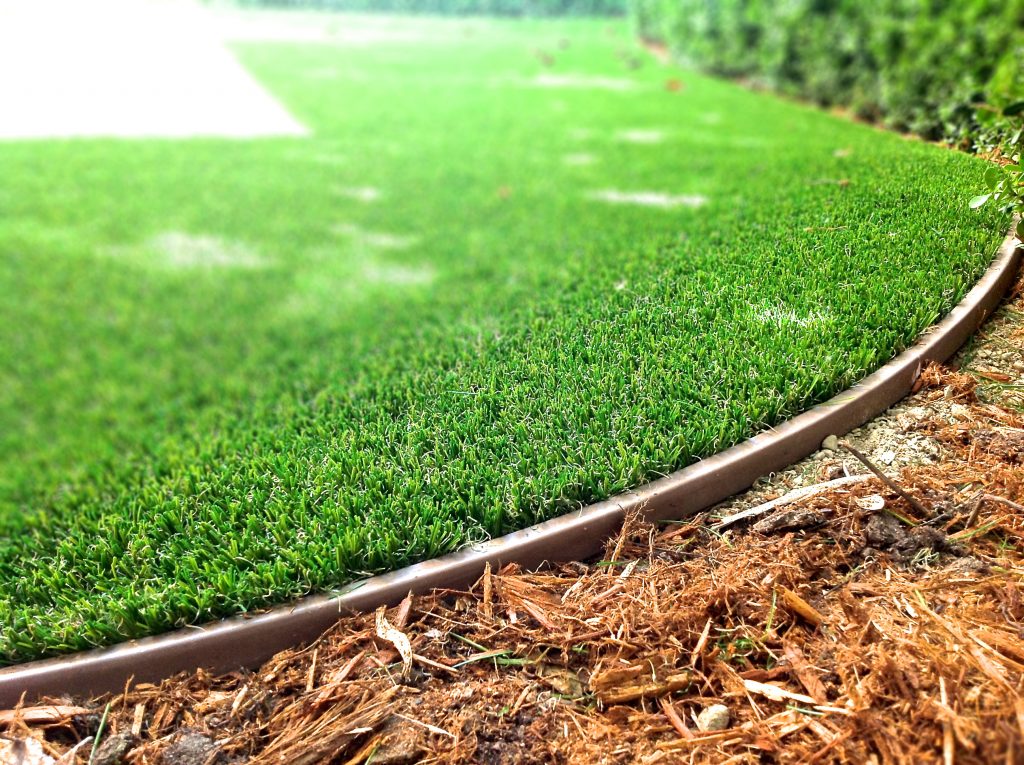Tailored Turf Installation Phoenix AZ for Residences, Businesses, and Play Areas
Tailored Turf Installation Phoenix AZ for Residences, Businesses, and Play Areas
Blog Article
Explore the Environmental Advantages of Opting for Artificial Turf Solutions
The adoption of artificial lawn solutions presents an engaging opportunity to resolve pushing environmental obstacles. By considerably reducing water usage and minimizing the application of dangerous chemicals, these choices not only promote lasting landscaping yet additionally secure local environments. Furthermore, the lower carbon footprint linked with reduced maintenance tasks adds to a more sustainable approach to land monitoring. However, the ramifications of these benefits extend beyond mere conservation efforts, questioning regarding their lasting effect on environment conservation and overall eco-friendly balance. Exploring these measurements discloses a complex interaction worth taking into consideration.
Water Preservation Advantages
One of the most substantial benefits of synthetic grass is its ability to preserve water. In contrast, man-made lawn does not need watering, significantly decreasing the overall need for water sources.
By eliminating the demand for normal watering, synthetic grass contributes to lasting landscape methods and helps reduce the environmental influence of excessive water consumption. Furthermore, the preservation of water includes the decrease of drainage, which can cause dirt erosion and river pollution.
In addition, the installment of synthetic grass permits house owners and municipalities to assign water sources much more effectively, focusing on essential uses such as drinking water and farming. The change towards synthetic grass not just promotes liable water usage yet also straightens with broader environmental objectives intended at maintaining all-natural resources.
As neighborhoods increasingly prioritize sustainability, the water conservation advantages of fabricated turf present an engaging case for its adoption in commercial and household landscape design jobs.
Reduced Chemical Usage
The shift to synthetic grass considerably reduces the reliance on chemical therapies frequently utilized in natural turf maintenance. Conventional lawn management usually involves the application of herbicides, pesticides, and plant foods to promote growth and control insects. These chemicals can present risks to human health and wellness, regional wildlife, and the atmosphere, adding to dirt and water contamination.
In contrast, fabricated grass removes the need for these harmful substances. As soon as installed, it needs minimal maintenance, largely consisting of routine cleaning and occasional infill replenishment. This reduction in chemical use not just benefits the immediate environment but additionally adds to wider eco-friendly stability. By decreasing the release of artificial compounds into the environment, man-made lawn advertises much healthier soil and water supply.
Moreover, the absence of chemical drainage connected with synthetic grass installations helps protect neighborhood waterways from pollution, supporting marine life and maintaining biodiversity. Phoenix turf companies. As neighborhoods increasingly prioritize lasting practices, choosing fabricated turf presents a feasible service that straightens with ecological conservation objectives. Through this change, homeowner can appreciate lush green areas without compromising ecological health, paving the way for an extra sustainable future
Reduced Carbon Footprint

Moreover, the installment of synthetic grass can result in considerable water conservation. Natural lawns require substantial amounts of water for irrigation, which not just includes to the carbon footprint related to water extraction and therapy yet also stress neighborhood water sources. On the other hand, fabricated turf needs minimal upkeep, calling for no watering, thus significantly lowering water usage and its connected power prices.
In addition, the longevity of man-made turf adds to its lower carbon impact. With a life-span of as much as 15 years or more, the need for frequent substitutes is reduced, leading to much less waste and reduced energy usage in manufacturing and throwing away conventional yard choices. Overall, man-made lawn presents a sustainable alternative for eco mindful landscaping.
Habitat Preservation
Environment preservation is an important factor to consider in the argument over landscaping choices, specifically when comparing synthetic grass to all-natural yard. Natural lawn lawns commonly call for substantial maintenance, including making use of fertilizers, chemicals, and herbicides, which can detrimentally impact regional ecosystems. These chemicals can leach right into the dirt and waterways, damaging native vegetation and animals and disrupting regional habitats.
In comparison, artificial lawn provides an opportunity to decrease the eco-friendly impact of landscape design. By deciding for artificial turf, property owners can minimize the disturbance of all-natural habitats related to traditional yard care methods. Synthetic grass removes the demand for hazardous chemicals, thus shielding neighboring wildlife and maintaining the integrity of bordering ecological communities. Additionally, the installation of fabricated lawn can cause the conversion of previous lawn areas right into more biodiverse landscapes, such as pollinator yards or native plant locations, which can sustain local wild animals.
Inevitably, the shift to synthetic grass not only saves water and reduces maintenance efforts however additionally cultivates a much more harmonious partnership between human tasks and the natural environment, advertising environment conservation at the same time.
Long-Term Sustainability
Lasting sustainability is an essential variable in reviewing the benefits of fabricated lawn over typical grass yards. Among the most considerable benefits of man-made grass is its durability; it can last up to 15-20 years with very little maintenance, whereas all-natural turf needs frequent reseeding and replacement. This long life lowers the need discover this for consistent resources, such as water, fertilizers, and pesticides, which are vital for preserving a healthy grass lawn.
Furthermore, man-made lawn adds to a decrease in carbon emissions connected with yard care equipment. Conventional lawns typically require gas-powered mowers, leaners, and blowers, every one of which add to air contamination. Artificial turf companies phoenix. On the other hand, synthetic grass removes the demand for such equipment, advertising a cleaner atmosphere
Furthermore, the manufacturing of artificial grass progressively utilizes recycled materials, boosting its sustainability account. As manufacturers take on environmentally friendly techniques, the ecological impact of fabricated lawn remains to decrease.

Final Thought
The adoption of synthetic grass remedies offers substantial ecological benefits, consisting of substantial water conservation, decreased dependence on harmful chemicals, and a reduced carbon footprint. Fabricated turf aids in protecting all-natural environments by minimizing land disruption and promoting lasting sustainability through the usage of durable materials. Collectively, these elements underscore the possibility of man-made turf to add positively to environmental health and wellness and use a feasible option to standard landscape design methods in a significantly resource-conscious world.
In comparison, synthetic lawn does not require watering, substantially decreasing the general need for water sources. By reducing the release of synthetic substances into the environment, artificial lawn promotes much healthier dirt and water systems.
Furthermore, go to this site the installment of man-made grass can result in considerable water conservation. In comparison, artificial grass requires very little upkeep, needing no watering, therefore dramatically reducing water usage and its connected energy prices.

Report this page